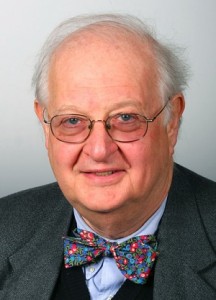Researching the politics of development
Blog

Angus Deaton wins the 2015 Nobel Prize for Economics

13 October 2015
By Anna Webster
The renowned Princeton Economist Angus Deaton has just won the 2015 Nobel Prize for Economics and his insights on effective states are vital reading. “He’s been the most rigorous of economists looking at how you measure world poverty,” says Professor David Hulme, CEO of ESID. “He is also a very balanced critic, recognising where aid has been effective and where it hasn’t .”
In Weak States Poor Countries, Deaton writes of how citizens of rich countries often take state services and protections like public schools, healthcare and social security for granted. But the absence of such state capacity is “one of the major causes of poverty and deprivation around the world”. In many countries, regulation and enforcement don’t work effectively. Police persecute and bribe the people they are supposed to protect. Health practitioners are not regulated by the state and are often unqualified. Children die because of a lack of routine maternal and child health care and there is mass absenteeism in public schools.
Although foreign aid has achieved a great deal, it is also making things worse by undermining the development of local state capacity. When governments receive aid directly but have no proper accountable systems, such as parliament or tax collection, little of the aid reaches the poor.
Giving aid directly to the poor may result in better immediate effects, but Deaton argues that this is no solution. “Poor people need government to lead better lives … poor countries cannot forever have their health services run from abroad. Aid undermines what poor people need most: an effective government that works with them for today and tomorrow.”
Deaton ends by saying that one thing we can do is to stop making already weak governments weaker. We can start by “reducing aid … limiting the arms trade, improving rich-country trade and subsidy policies, providing technical advice that is not tied to aid, and developing better drugs for diseases that do not affect rich people.”
In his 2015 book Global Poverty: Global Governance and Poor People in the Post-2015 Era, Professor David Hulme commends Deaton’s 2013 work, The Great Escape: Health, Wealth and the Origins of Inequality. “This book brilliantly analyses how humanity got healthier and wealthier in the last two hundred years and explains why inequality is now the great contemporary challenge. Deaton weighs the empirical evidence with great care and is not afraid of admitting that on many important issues it is difficult to reach precise conclusions. He puts his technical economic skills aside and writes in a lucid style that is accessible and persuasive.”
